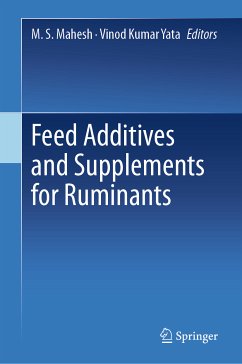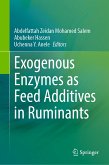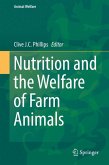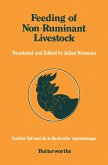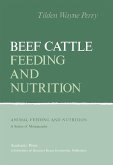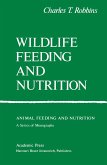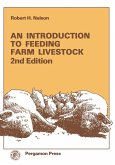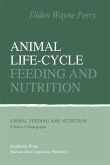This book comprehensively reviews various feed additives and supplements that are employed for ruminant production and health. It discusses important strategies of using additives and supplements through rumen fermentation, immunomodulation, nutrient utilization, and cellular metabolism that lead to enhanced milk production, body weight gain, feed efficiency, and reproduction. The book also presents the importance of nutritional supplements such as B-vitamins, advances in mineral nutrition, role of lesser-known trace elements, protected amino acids, slow-release nitrogen and rumen buffers on performance and health of ruminants. In addition, the book explores strategies for improving environmental stewardship of ruminant production by minimizing carbon footprint associated with greenhouse gas emissions, enhancing ruminant-derived food safety through mycotoxin binders, exogenous enzymes, probiotics, flavours, biochar, ionophores, seaweeds and natural phytogenic feed additives with an emphasis on plant secondary metabolites (tannins, saponins and essential oils, etc.). It also details information on silage additives, additives and supplements employed in successful calf rearing, transition cow management as well as to ameliorate the adversity of heat stress in ruminants.
Overall, the book is valuable for veterinary and animal science researchers, animal producers, nutrition specialists, veterinarians, and livestock advisors.
Dieser Download kann aus rechtlichen Gründen nur mit Rechnungsadresse in A, B, BG, CY, CZ, D, DK, EW, E, FIN, F, GR, HR, H, IRL, I, LT, L, LR, M, NL, PL, P, R, S, SLO, SK ausgeliefert werden.

